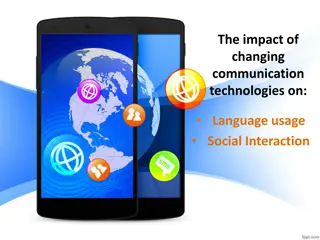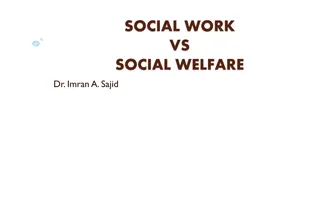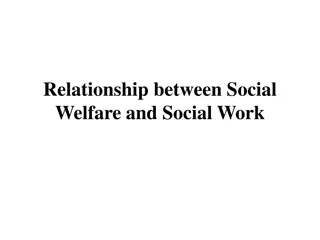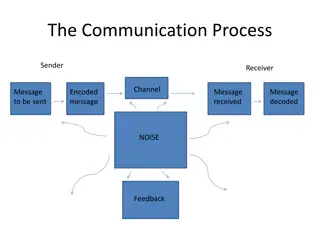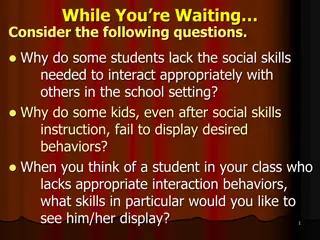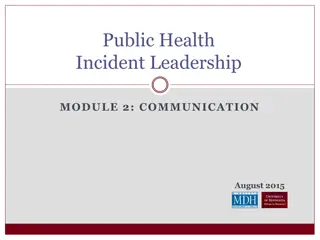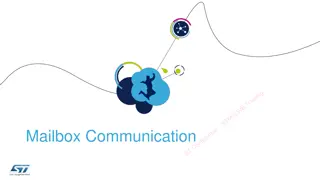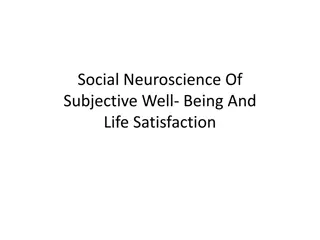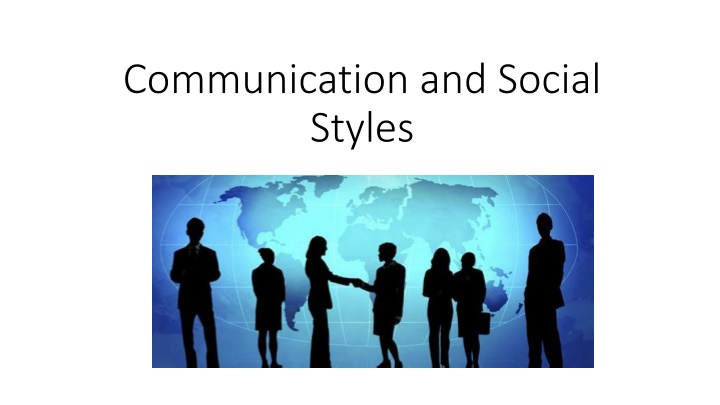
Communication and Social Styles for Effective Interaction
Explore the importance of communication, factors influencing interpretation, active listening, perception, gaining insight through questions, good listening behaviors, and different social styles. Learn how understanding these aspects can enhance interactions with others.
Download Presentation

Please find below an Image/Link to download the presentation.
The content on the website is provided AS IS for your information and personal use only. It may not be sold, licensed, or shared on other websites without obtaining consent from the author. If you encounter any issues during the download, it is possible that the publisher has removed the file from their server.
You are allowed to download the files provided on this website for personal or commercial use, subject to the condition that they are used lawfully. All files are the property of their respective owners.
The content on the website is provided AS IS for your information and personal use only. It may not be sold, licensed, or shared on other websites without obtaining consent from the author.
E N D
Presentation Transcript
Communication and Social Styles
Communication Why is it important Tool for Understanding Social Function Understanding Miscommunication Causes: Conflict Stress Miscommunication Good Communication helps us: To be understood To Understand Others To be accepted To get something accomplished
Factors Influencing Communication Interpretation Context Feedback Semantics Barriers Jargon Acronym
Active Listening Verbal Non-Verbal Communication Para-language Communication The words we hear. What we see. How we say it. What our body says to others. The words we say.
Perception: Same Conversation, Different Perceptions. Perception and Communication We can predict others actions or reactions to life's events by our perception of them. Is Perception Reality? We interpret words and behaviors and draw conclusions based on our perception.
Gain information. Gain Insight. Open Ended Questions Help Us: Gain More Information than Closed-Ended Questions. Gain Understanding
Good Listening Behaviors: Don t interrupt the Speaker. Mirror Back the Thought. Look for Agreement.
Social Styles Analytical Driver Action oriented Emotionally controlled Controls emotions Prefers to analyze a situation Trust facts more than intuition Focus on people, rather than tasks Ask rather than tell Warm and friendly Trust their intuition Amiable Expressive
Lessons Learned: We learn from social styles that we differ in many ways. We differ in the way we make decisions; how act in meetings; how much faith we have in data and facts versus intuition; whether we have a task or a people orientation; or how comfortable we are in taking charge. We can once armed with this knowledge of others styles, adapt our behavior to accommodate our Co-workers.






